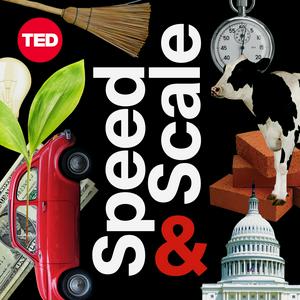Even if we do everything we need to do to limit our carbon emissions—curb deforestation, stop driving so many miles, clean up our power grids—we still need to remove gigatons of carbon from our atmosphere to meet our climate goals. Carbon removal is still a new technology, and while carbon removal companies removed roughly 35,000 tons of carbon last year, we have a long way to go. Luckily, there are people working on creative ways to raise the capital needed for development of this crucial tech. Ryan and Anjali chat with Nan Ransohoff, Head of Climate at the online payment company Stripe, and learn about her efforts to invest in carbon removal, and encouraging other big companies to remove 10 million gigatons of carbon each year by 2050.
For the full text transcript, visit ted.com/podcasts/speed-and-scale-transcript
Learn more about our flagship conference happening this April at attend.ted.com/podcast
Hosted on Acast. See acast.com/privacy for more information.


